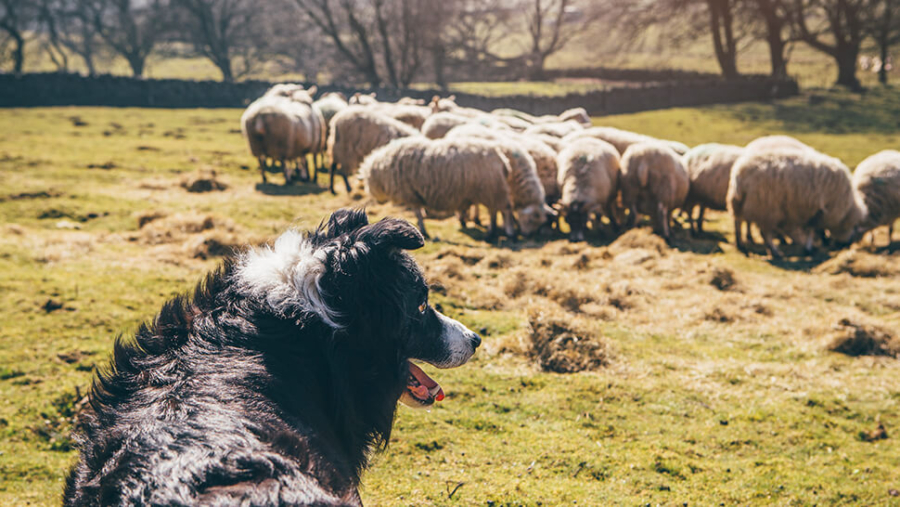

Approaching farmyards in the course of my work and receiving a warm welcome around the kitchen table is one of the true joys of working in the agricultural sector. The walk between the car and the kitchen table though, does sometimes present some challenges.
Farmyard dogs carry out an important role in ensuring safety and security in a rural setting whilst other dogs are an useful tool in dealing with age old shepherding practices. Certain breeds like the Kelpie are so attuned to these duties they act with robot like efficiency on the task at hand. Having a faithful servant to execute the work so efficiently is a huge positive.
What has caused conflict in recent times are members of the public who are coming to the countryside for leisure reasons, whether walking with or without their dogs, jogging or cycling. The jogger running through a public road when the dog is on the yard may be surprised if he is chased and occasionally bitten, but this is not a surprise when the dog is doing what it was bred to do. This is not about dangerous dogs or fighting dogs, it is the conflict between the farm and those who wish to enjoy the countryside.
The legal position is artificial and provides for an offence of being in charge of a dog which was out of control. What this means and how it is interpreted is based on, firstly, if the farmer had control of the dog and secondly, if the dog was acting dangerously.
If the dog bites anyone, the issue is clearer, but if it only gives the person grounds to feel that it may injure them, the law still applies. This creates uncertainty and makes no allowance for those who may be unfamiliar or nervous around animals.
Owners need to be aware of these issues because whilst in the town if someone leaves a dog loose or fails to place a gate between the animal and the street there is a clearer obligation. In the countryside when animals need to be left free to patrol and stand guard in a rural setting there is no consideration of these special circumstances.
Some might say that the lone jogger running through a right of way or a solicitor visiting a client should be on notice, but the law does not give such an option. It is a recipe for uncertainty and the cause of possible neighbour disputes. It is often coupled with the problem of the farmer of not being present on the yard, so being unable to say what happened, because they were dealing with myriad other duties.
It is important though to take action when someone makes such an allegation. If you react positively to the alleged incident and communicate clearly with any person indicating any fault, without making any admissions, but seeking as much information as possible and no conflict, that will be helpful. People who have been bitten may feel justified in being angry, and farmers are justified in protecting their property when rural crime is such an issue, but all too often the incident escalates unless communication is effective from the start.
There is then a series of steps that can be taken in terms of alternative disposals and local resolution. It is essential to obtain legal advice to make sure that the engagement with the police is constructive, measured and thoughtful, to avoid prosecution.
Engagement must be comprehensive and led by those who understand the legal issues. The alternative of seeking conflict and not investigating the matter early with legal advice can lead to the destruction of the animal and, in the worst circumstances, custody.
The demand of the public to access our countryside is not going to change. Equally farmers will always be dependent upon their dogs for the stewardship of their sheep and the security of their holdings. But they need to be cautious when and if these matters arise. Simple steps taken early will always lead to the best and earliest conclusion of any dispute.










